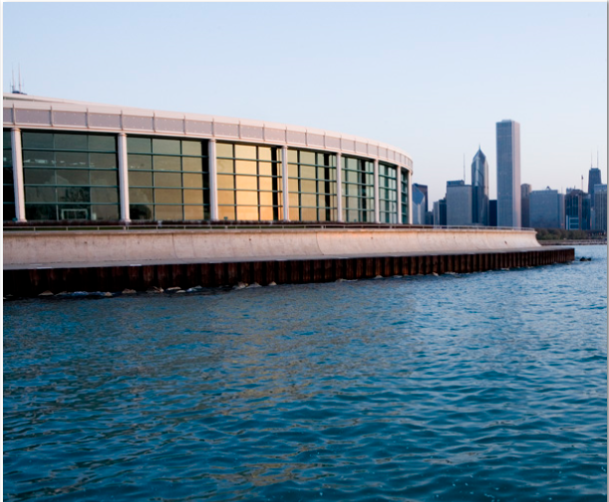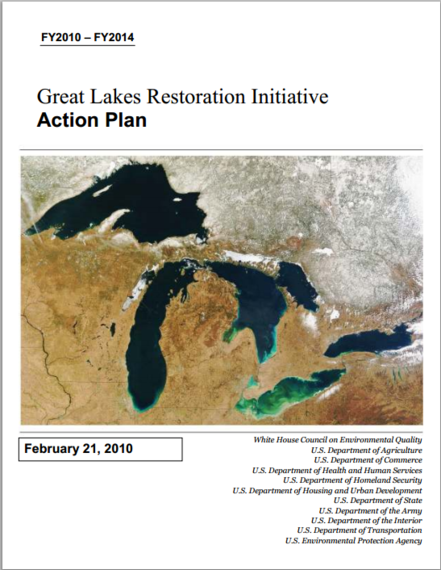
Every year, millions welcome the start of the New Year as an opportunity to reflect and resolve. It seems fitting that we begin 2014 with our own version of resolutions that seek a shared result -- a healthy Great Lakes ecosystem for many new years to come.
For the last ten months, I have had the opportunity to represent Shedd Aquarium and Chicago on the U.S. EPA's Great Lakes Advisory Board (GLAB) -- a group of leaders and officials from every side of the lakes appointed by the U.S. EPA Adminstator to help bring the deeply complicated issues facing the Great Lakes to the surface. We listened to key publics, adding their voices to our perspectives in order to help provide direction on the road to restoring our Great Lakes. The result is our recommendations for the next Action Plan for implementing the Great Lakes Restoration Initiative (GLRI).
Focusing on questions posed by the Great Lakes Interagency Task Force (IATF), the Great Lakes Advisory Board provided recommendations to help guide effective investments for improving ecosystems for the future:
A Balanced Approach
Federal agencies should continue to emphasize prevention, protection, sustainability as much as restoration. A steady, yet strategic approach that touches on each element of Great Lakes conservation is essential to the immediate and long-term future of our North American water system.
Plan for Climate Change
The impact of a changing climate cannot be ignored and is a critical factor for planning the future of the Great Lakes. However, the Board is careful to caution against a slippery slope that might shift GLRI to become a climate change program. Projects must incorporate climate change adaptation practices, but not focus on climate change exclusively.
Delisting Areas of Concern
The most direct ecological benefits for the Great Lakes are created through on-the-ground and in-the-water activities. Projects that seek to quickly advance to improve the most pressing Areas of Concern (AOC), alleviating those critical areas from that designation, are a priority.
Preventing Asian Carp
Invasive Asian carp continue to be top of mind in the battle to protect and preserve the Great Lakes. More generally, the Board recommends investing in programs designed to prevent the introduction of new invasive species and to reduce runoff lowering phosphorus pollution in certain areas.
Collaboration and Accountability
As a Board, we recognized that complexity surrounds Great Lakes conservation, so a shared scale of measurement to weigh results is essential. How will we know we've succeeded without one? Tracking economic benefits and using the scientific indicators provided by the International Joint Commission (IJC 2012) help define our progress.
140 communities around the basin stretching from Duluth, Minn. to Ontario, Canada depend on the future and health of the Great Lakes. We come from different parts of the map, speak with different accents and in some cases, in different languages, but our goal is the same -- protect and restore the Great Lakes.
I'm proud of the work the U.S. EPA Great Lakes Advisory Board did in short order. We listened, we compromised, and in the end, incorporated the best ideas to make the GLRI stronger, more impactful, and most importantly, fundable for the next 4 years.
As a Board, we remain committed to continuing to meet throughout 2014. Contribute your own thoughts or concerns by e-mailing your comments directly to actionplan@glnpo.net. The complete report from the Great Lakes Advisory Board can be found here: http://glri.us/public.html. Follow Shedd Aquarium's Great Lakes conservation efforts on Twitter at @Shedd_GL.
